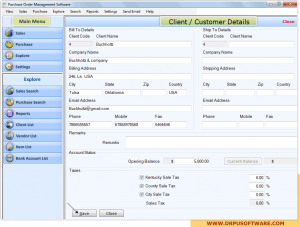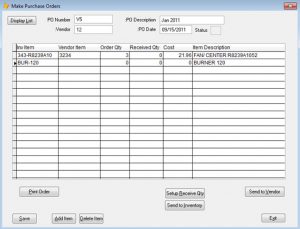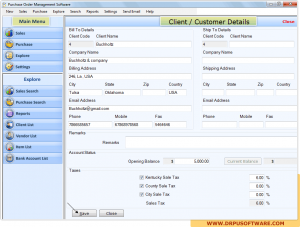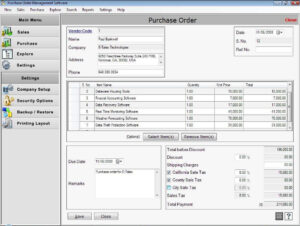Streamlining Supply Chains: The Impact of Online Purchase Order Systems on Logistics
In today’s fast-paced business environment, efficient logistics management is crucial for maintaining competitive
advantage and meeting customer demands. With the rise of e-commerce and global supply chains, organisations are
constantly seeking ways to streamline their logistics operations. Online purchase order systems, also known as PO
software or purchase order management systems, have emerged as a key solution to this challenge. These systems
play a vital role in optimising procurement processes, enhancing visibility, and improving collaboration across
the supply chain. To explore the impact of online purchase order systems on logistics, visit cloudb2b.co.uk.
Enhanced Efficiency
One of the primary benefits of online purchase order systems in logistics is enhanced efficiency. Traditional
procurement processes often involve manual paperwork, phone calls, and emails, leading to delays and errors.
However, online purchase order systems streamline these processes by digitising and automating procurement
workflows.
With features such as electronic purchase order creation, automated approval workflows, and real-time tracking,
online purchase order systems enable organisations to process orders more quickly and accurately. This results
in shorter lead times, reduced inventory holding costs, and improved responsiveness to customer demands.
Furthermore, by centralising procurement data and providing real-time insights, these systems enable logistics
managers to make informed decisions and optimise their operations for greater efficiency.
Improved Collaboration
Another key impact of online purchase order systems on logistics is improved collaboration across the supply
chain. In traditional procurement processes, communication between buyers and suppliers can be fragmented and
inefficient, leading to misunderstandings and delays.
Online purchase order systems facilitate seamless communication and collaboration between all parties involved
in the procurement process. By providing a centralised platform for order management, document sharing, and
communication, these systems enable buyers and suppliers to collaborate more effectively and resolve issues in
real-time. This enhanced collaboration not only improves the efficiency of logistics operations but also
strengthens relationships between trading partners and fosters a more transparent and responsive supply chain.
Enhanced Visibility
Visibility is a critical factor in effective logistics management, and online purchase order systems provide
enhanced visibility into procurement processes and supply chain activities. These systems enable logistics
managers to track orders, monitor inventory levels, and identify potential bottlenecks or delays in the
procurement process.
By providing real-time updates and notifications, online purchase order systems enable logistics managers to
proactively address issues and make informed decisions to optimise their operations. Furthermore, by
consolidating procurement data from multiple sources into a single platform, these systems provide a holistic
view of the supply chain, enabling logistics managers to identify opportunities for process improvement and
cost reduction.
Conclusion
Online purchase order systems have a significant impact on logistics by streamlining procurement processes,
improving collaboration, and enhancing visibility across the supply chain. By digitising and automating
procurement workflows, these systems enable organisations to achieve greater efficiency, responsiveness, and
cost-effectiveness in their logistics operations.








